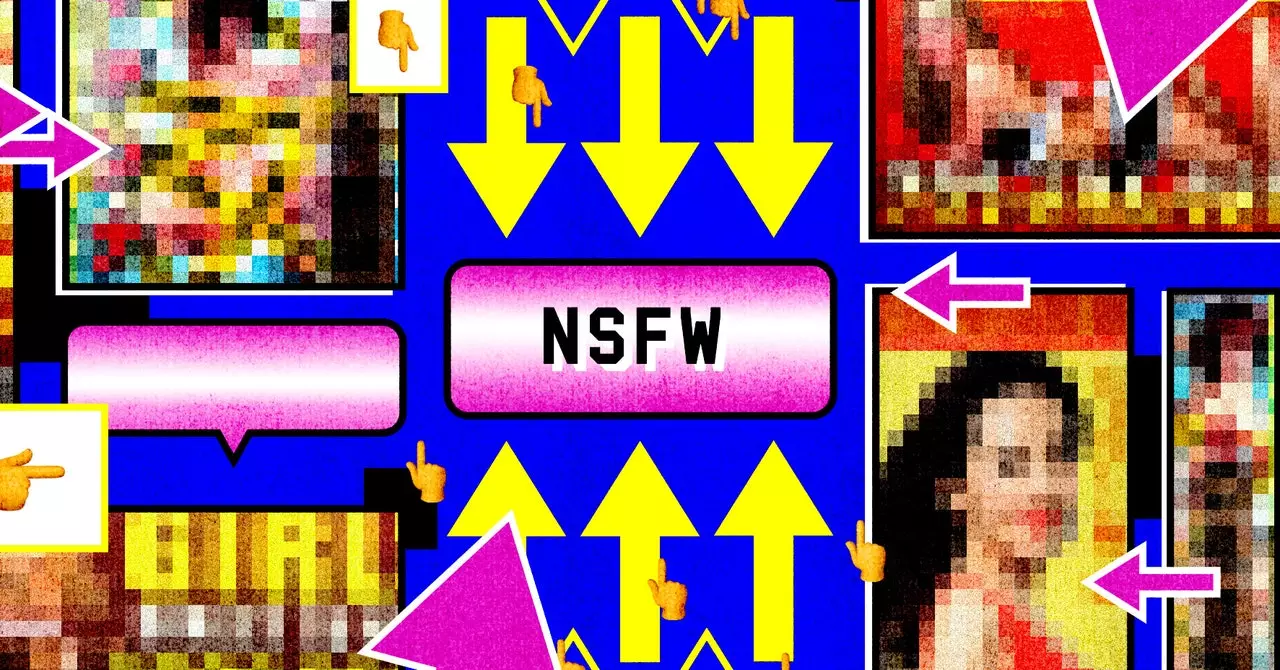Upon further investigation, it was discovered that there were 3,000 ads for “AI girlfriends” and 1,100 containing “NSFW” live on April 23 on Meta’s ad library. The initial review conducted by WIRED revealed that Hush, an AI girlfriend app with over 100,000 downloads from Google’s Play store, had published 1,700 ads across Meta platforms. These ads promised “NSFW” chats and “secret photos” from a variety of lifelike female characters, anime women, and cartoon animals. One particularly disturbing ad showed an AI woman in medieval prison stocks, expressing a desire to do anything for the viewer. Another ad targeted men aged 18 to 65, featuring an anime character and the message, “Want to see more of NSFW pics?”
It was also found that several ads for the “personalized AI companion” app Rosytalk promised around-the-clock chats with very-young-looking AI-generated women. These ads used tags like “#barelylegal,” “#goodgirls,” and “teens.” Rosytalk ran 990 ads under various brand names on Meta platforms, including Rosygirl, Rosy Role Play Chat, and AI Chat GPT. Furthermore, at least 13 other apps for AI “girlfriends” were promoting similar services in Meta ads, including features that allowed users to “undress” their AI girlfriend and download the images. Despite some of these ads being removed for violating Meta’s advertising standards, the existence of such content raises serious ethical concerns.
Impact on Society
While some users of AI companions argue that they can help combat loneliness and provide emotional support, the promotion of AI girlfriends with sexually suggestive content on social media platforms is troubling. Carolina Are, an innovation fellow specializing in social media censorship, points out the double standard applied by Meta when it comes to sex workers and AI companies. She notes that while sex workers face difficulties promoting their services on the platform, AI companies freely exploit images and content for profit. Are also highlights the impersonal nature of AI girlfriend apps compared to the personalized interactions offered by sex workers, emphasizing the emotional labor involved in building genuine connections with clients.
One of the concerning aspects of these AI girlfriend apps is the lack of transparency regarding their development and algorithms. Limited information is available about how these apps are built or how the underlying text or image-generation algorithms are trained. One app, named Sora, appeared to suggest a connection to OpenAI’s video generator, but the specifics of this connection remain unclear. This lack of transparency raises questions about the ethics and accountability of companies developing and promoting these AI girlfriend apps.
The proliferation of AI girlfriend apps with sexually suggestive content on Meta platforms raises serious concerns about exploitation, accountability, and the impact on society. It is essential for tech companies like Meta to uphold ethical standards and regulate the content that is allowed to be promoted on their platforms. Furthermore, conversations about the ethical implications of AI technology and its role in shaping human relationships need to be amplified to prevent the normalization of harmful behaviors and attitudes.


Leave a Reply